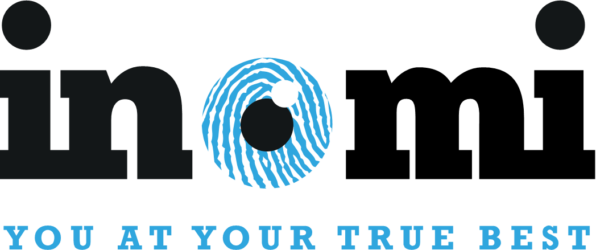
Choice is a wonderful thing, and then it makes us scratch our heads. Should you choose CBSE, IB or A Levels? Which will bring out my child’s best? Is one preferred by others by international colleges, or even private colleges in India? Which one is best for a kid to take competitive exams in India?
Let’s break it down and discuss the key differences across leading Indian and international curricula.
A Levels: British curriculum emphasizing subject depth and academic rigor.
CBSE: Indian curriculum known for a structured approach and emphasis on foundational knowledge.
IB: International curriculum focusing on well-rounded development, critical thinking and original research skills.
ISC: Indian curriculum known for its balanced and in-depth focus on languages, arts, and sciences.

Curriculum Structure
A Levels: Offers subject flexibility; students usually choose 3-4, some who really want to challenge themselves even choose 5 subjects to specialize in. A-levels are taken in the 13th year of schooling, which is equivalent to the 12th grade in India.
CBSE: Students choose 5 subjects in class 11 and 12. Classes 1-10 have the same subjects for all students.
IB: Comprehensive program with six subject groups, core components like Theory of Knowledge (TOK), Creativity, Activity, Service (CAS), and the Extended Essay.
ISC: Balanced breadth with a slightly more challenging syllabus than CBSE. It focuses on English proficiency, practical components in sciences, and offers creative electives like Fine Arts.

Approach to Learning
A Levels: Focuses on depth and subject-specific expertise.
CBSE: Emphasis on rote learning and standardized tests, though evolving towards conceptual clarity.
IB: Inquiry-based, interdisciplinary learning with a focus on critical thinking and real-world applications.
ISC: offers flexibility with subject choices and emphasizes both conceptual understanding and application-based learning.

Assessment Patterns
A Levels: Exams are typically modular, with AS and A2 levels. Focus on written exams. One can even take a subject at AS level and finish that off in Year 11 itself.
CBSE: Annual board exams for Class 10 and 12, with internal assessments gaining importance.
IB: Combination of internal and external assessments, including essays, projects, and exams.
ISC: Exam heavy with an emphasis on language proficiency.

Skill Development
A Levels: Builds deep academic depth and analytical skills in the chosen subjects.
CBSE: Focuses on strong academic basics and competitive exam preparation.
IB: Develops critical thinking, deep knowledge and interdisciplinary connections.
ISC: enhances analytical thinking, research, communication, and practical skills through its academic rigor and subject variety.

Global Recognition
A Levels: Widely accepted by universities worldwide, particularly in the UK and Commonwealth countries
CBSE: Primarily recognized in India, though many global universities accept it. Not valued as highly by certain universities, particularly Oxbridge which will expect you to take Advanced Placement (AP) exams alongside the CBSE curriculum. Ideal curriculum to choose if you want to do NEET or JEE in India.
IB: Globally recognized and valued, especially in the US and Europe. Private Indian universities have started accepting the IB as well. US and Canadian universities even offer college credits for certain IB courses taken in high school.
ICSE: Strong recognition in India and most international institutions.

Costs and Accessibility
A Levels: Offered in international schools; moderately expensive.
CBSE: Affordable and accessible across India.
IB: Expensive, with limited schools offering the program at a high quality level in India.
ICSE: Moderately expensive and less widespread than CBSE.

Challenges of each Curriculum
A Levels– Very in depth courses and a very limited breadth of courses because students take 3-4 subjects only.
CBSE– A lot of rote learning required therefore if that’s something you have a difficult time with, then the CBSE would get tough. CBSE focuses on theoretical knowledge with limited emphasis on critical thinking, creativity, or problem-solving.
IB– Immense workload, with 6 subjects, the IB is certainly a lot to take on. The IB also has an extended essay which requires a lot of research and writing. IB is very time intensive and requires a significant amount of time outside of school. It is also not ideal for Indian Competitive Exams.
ISC– An academically demanding curriculum with a heavy syllabus and an exam-focused assessment system. ISC is offered in a limited number of schools, and its higher English standard can be challenging for Indian students.
So, which curriculum is right for you? That really depends on your own learning style and which environment you would thrive in. However, we do recommend starting early on with the IB or A levels if that is the route you intend to take because it can get difficult for some students to transition into the international curriculums at a later stage.
The writer is Founder and CEO, Inomi Learning, a Gurugram-based career and college guidance firm. info@inomi.in
The original article was first published in ‘The Hindu’, on December 15th, 2024.
With inputs from Kritika Malhotra, Lead Counsellor at Inomi Learning.

Richa Dwivedi Saklani is a certified coach from UCLA and is an accredited MBTI trainer who has worked with over 10,000 people across career planning and as a behavioral trainer in companies. She is the CEO & Founder of Inomi Learning and author of “The Ultimate Guide to 21st Century Careers”.
